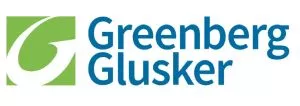Many in the real estate industry are familiar with the term cost segregation study. A cost segregation study identifies components within buildings that can be depreciated over shorter periods than the 27.5 and 39-year periods that typically apply to real estate. This allows taxpayers to defer taxes through accelerated depreciation deductions. Many components identified in a cost segregation study are eligible for bonus depreciation. Eligible property placed in service between 2017 and 2022 was eligible for 100% bonus depreciation. Under current law, bonus depreciation is being phased out from 2023 to 2027. However, legislation recently passed by the House of Representatives would extend 100% bonus depreciation from 2023 through 2025.
For purposes of IRC Section 1031, many components identified in a cost segregation study are treated as real property that can be sold and purchased in 1031 exchanges. However, for depreciation purposes, these same components are personal property referred to as Section 1245 property. Section 1245 property also includes real property that has had its basis adjusted under IRC Section 179. When Section 1245 property is sold, IRC Section 1245 provides that depreciation taken on such property is recaptured as ordinary income.
As a result of the interaction between IRC 1031 and IRC 1245, a taxpayer can complete a 1031 exchange without any boot and still have ordinary income from depreciation recapture if the value of the Section 1245 property included in the relinquished property exceeds the value of the Section 1245 property included in the replacement property.
Taxpayers involved in exchanges where a cost segregation study was performed on the relinquished property should be aware of these rules and ensure that their replacement property includes enough Section 1245 property to avoid depreciation recapture. This may require a taxpayer to avoid certain asset classes as replacement property and/or perform a cost segregation study on the replacement property.
This article was originally published in the inaugural issue of Genesis Bank's "Insights" newsletter.
The content of this article is intended to provide a general guide to the subject matter. Specialist advice should be sought about your specific circumstances.


